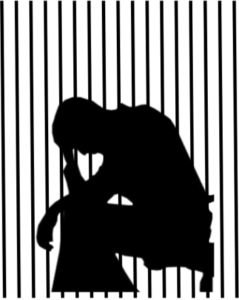What does a wrongfully convicted person need when she/he is spit out of the prison system? That person needs Innocence Reclaimed. Per panelist Marvin Cotton, these people are “more attempting to resurrect their first chance than get a second one”.
Though rare, wrongful convictions happen more than you might think. It’s even more rare when the wrongful convictions are acknowledged by the system – this too is a growing phenomena.
The focus is upon cases where the system actually recognizes a mistake. Another label applied to these people is that of exoneree. Tragically, support for people in this situation is not necessarily better or as defined than it is for more appropriately convicted.
Out4Life Detroit is a consortium that works to help returning citizens succeed. ‘Innocense Reclaimed’ was the title of the group’s spring symposium, held last month. Much of this hour-and-a-half YouTube replay is incredible Q&A. This is important work in the trenches. Such work is more vital than glamorous; certainly it’s vital to the service recipients, those trying to “make it” in society.
Panelist Guests at the Symposium
In 1991 at the age of eighteen, panelist Hakim Crampton was convicted of reckless homicide. He focuses on securing exoneration for a crime he says he did not commit. The system released him and acknowledges his progressive efforts. But he has not received formal exoneration. Recently Hakim was appointed by the governor to the Michigan Indigent Defense Commission.
Marla Mitchell-Cichon is Distinguished Professor Emeritus and Counsel to the Western Michigan University – Cooley Law School Innocence Project. They promote post-conviction DNA testing to prove innocence. She discusses progress in terms of allowing DNA and using it beyond an original trial.
Valerie Newman is the Director of the Wane County Conviction Integrity Unit. Their mission: “determine whether new evidence shows that an innocent person has been wrongfully convicted of a crime, and to recommend steps to rectify such situations”. They make an important positive difference.
Other compassionate panelists include:
- Pastor Terrence Devezin (provider of church-based assistance to exonerees);
- Ramon Ward (exoneree who served 26 years);
- Julie (exonerated after intervention by the Michigan Innocense Clinic);
- Bishop Herman Starks (wrongly convicted humanitarian).
The symposium also featured Ms. Tiana Brown, Director of the Detroit Rescue Mission Ministries. She introduced the agency’s services, including reentry mentoring. The symposium was moderated by Out4Life Co-Chair Joe Williams, who is intimately involved in the Second Chance Act. The program was supported by Out4Life co-chair Denise Harris of Prison Fellowship Ministries, and Pastor Dale Milford, Prison Outreach Leader at Southfield, Michigan’s Hope United Methodist Church.
Innocence Reclaimed in Context of Criminal Justice Reform
So, let’s add reduction of wrongful convictions to the wish list of criminal justice reforms. Put it there next to other things like: stronger reentry mentoring inclusive of mental health support, and the cessation of criminalization of family law. (More to come on these latter topics).
 Wrongful conviction exacerbates the psychological trauma of losing one’s freedom, whether or not the innocence is acknowledged by the system.
Wrongful conviction exacerbates the psychological trauma of losing one’s freedom, whether or not the innocence is acknowledged by the system.
There are more wrongful convictions than those admitted by the system. Wrongful convictions are a systemic failure. A wrongful conviction cannot come until after there has been an erroneous arrest. Questionable targeting and ineffective litigation also contribute. Improper sentencing caps off the miscarriage. Take a systemic view if you want to understand the problem and its significance.
When system components hide behind or blame each other, justice is not served. Best answers lie in problem prevention, the essence of a quality system. In the mean time, this symposium shows real tactical progress.
Wrongfully convicted persons sometimes receive money. How much money should be given for lost time and lost freedom? There is no real consensus, but the value is generally large. Do monetary awards detract from system willingness or aptitude to admit mistakes? It seems so. Receivers of such money are not necessarily able to manage it well.
Man’s predominant fear is said to be the fear of losing his freedom. Yet good predictable handling of wrongful convictions is deficient or missing. Wrongful convictions are an inconvenient truth; they are not as simple or head-line-grabbing as other reform topics.
Summary
Wrongful convictions are part of the ‘grand reentry challenge’ stemming from mass incarceration.
Returning citizens face many challenges. Wrongfully convicted persons are a special class of returning citizen, or call them returning neighbors. They are among the throng that has been in prison, that is coming back to our communities. Communities, such as Metro Detroit, is where the caring efforts need be applied.
Returning citizens generally want to succeed. So, Out4Life helps them make good on their opportunity. By covering wrongful convictions, Out4Life indicates the topic is important and needs the attention of you thinking, caring people.
Cases of wrongful conviction present extraordinary need; these returning people always need good proactive help. If you watch all or part of the symposium YouTube replay, please subscribe and spread awareness. Thank you for considering.

